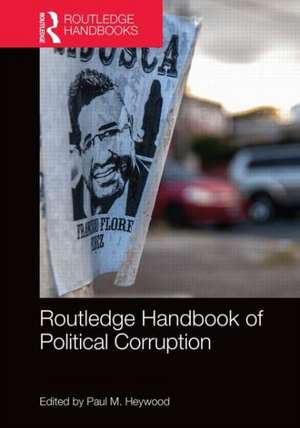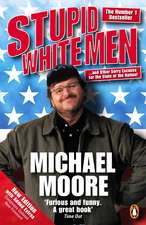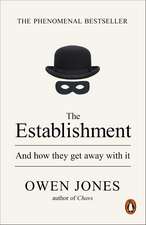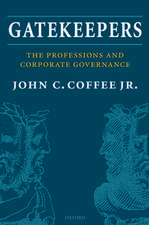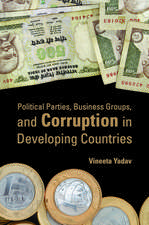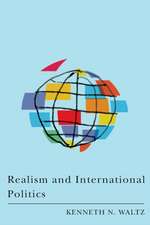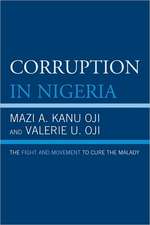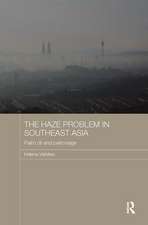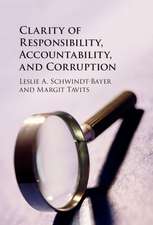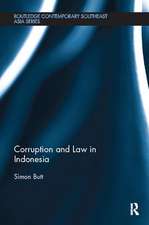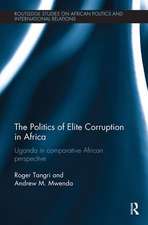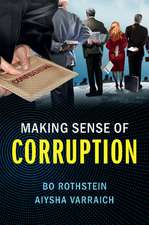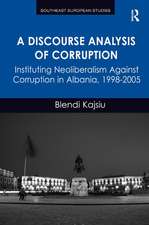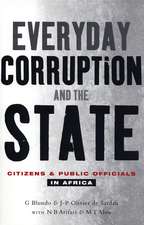Routledge Handbook of Political Corruption
Editat de Paul Heywooden Limba Engleză Hardback – 5 ian 2015
| Toate formatele și edițiile | Preț | Express |
|---|---|---|
| Paperback (1) | 477.83 lei 6-8 săpt. | |
| Taylor & Francis – 13 mar 2018 | 477.83 lei 6-8 săpt. | |
| Hardback (1) | 1556.66 lei 6-8 săpt. | |
| Taylor & Francis – 5 ian 2015 | 1556.66 lei 6-8 săpt. |
Preț: 1556.66 lei
Preț vechi: 1898.36 lei
-18% Nou
297.86€ • 312.11$ • 246.24£
Carte tipărită la comandă
Livrare economică 12-26 aprilie
Specificații
ISBN-10: 0415617782
Pagini: 380
Ilustrații: 24
Dimensiuni: 174 x 246 x 25 mm
Greutate: 0.79 kg
Ediția:1
Editura: Taylor & Francis
Colecția Routledge
Locul publicării:Oxford, United Kingdom
Public țintă
Postgraduate and UndergraduateCuprins
Section 1: Understanding corruption
2. The definition of political corruption, Mark Philp
3. Definitions of corruption, Oskar Kurer
4. The meaning of corruption in democracies, Mark Warren
5. The contradictions of corruption in Nigeria, Daniel J Smith
6. Criminal Entrepreneurship: a political economy of corruption and organised crime in India, Andrew Sanchez Section 2: Causes
7. Causes of corruption, Bo Rothstein and Jan Teorrell
8. What does cross-national empirical research reveal about the causes of corruption?, Daniel Triesman
9. Bureaucracy and corruption, Carl Dahlström
10. Sources of corruption in the European Union, Carolyn Warner Section 3: Measurment
11. Measuring corruption, Paul M Heywood
12. The Silence of Corruption: Identifying Underreporting of Business Corruption through Randomized Response Techniques, Nathan Jensen and Aminur Rahman
13. Corruption and the problem of perception, Jonathan Rose
14. The ethnographic study of corruption: methodology and research focuses, Davide Torsello
Section 4: Consequences
15. The consequences of corruption, Eric Uslaner
16. Corruption in Latin America: A View from the AmericasBarometer, Mitchell A Seligson and Brian M Faughnan
17. Corruption and development: the mutable edges of morality in modern markets, Sarah Bracking
18. Institutional design and anti-corruption in mainland China, Melanie Manion
19. The political economy of conflicts of interest in an era of public-private governance, Staffan Andersson and Frank Anechiarico Section 5: New directions
20. Reflection and Reassessment: The Emerging Agenda of Corruption Research, Michael Johnston
21. Gender and corruption, Lena Wängnerud
22. Behavioral and Institutional Economics as an Inspiration to Anticorruption - Some Counterintuitive Findings, Johann Graf Lambsdorff
23. Religion, Ethics and Corruption: Field Evidence from India and Nigeria, Heather Marquette
24. The threats to sports and sports governance from betting-related corruption: causes and solutions, David Forrest and Wolfgang Maennig
25. Freedom of information and corruption, Ben Worthy and Tom Mclean
Notă biografică
Paul Heywood is Sir Francis Hill Professor of European Politics at the University of Nottingham, UK. He has been a member of the ESRC Research Grants Board (2001-05) and was Dean of the University of Nottingham Graduate School from 2003-07. Between 2003 and 2009 he was co-editor of the international journal Government and Opposition, and is currently Chair of the Board of Directors. He is author, co-author or editor of thirteen books and more than seventy journal articles and book chapters. His research focuses on political corruption, institutional design and state capacity in contemporary Europe. In 2006, he was appointed Adjunct Professor at the University of Hunan (China), where he is Senior Adviser to the Anti-Corruption Research Center. He is a Fellow of the Royal Society of Arts (elected 2002).
Recenzii
--M. D. Crosston, Bellevue University
Summing Up: Highly recommended. Upper-division undergraduates and above.
Descriere
Since the early 1990s, a series of major scandals in both the financial and most especially the political worlds has resulted in close attention being paid to the issue of corruption and its links to political legitimacy and stability. Corruption remains as widespread today, possibly even more so, as it did when concerted international attention started being devoted to the issue following the end of the Cold War. This Handbook provides a showcase to the most innovative and exciting research being conducted in the field of political corruption, as well as providing a new point of reference for all who are interested in the topic.
